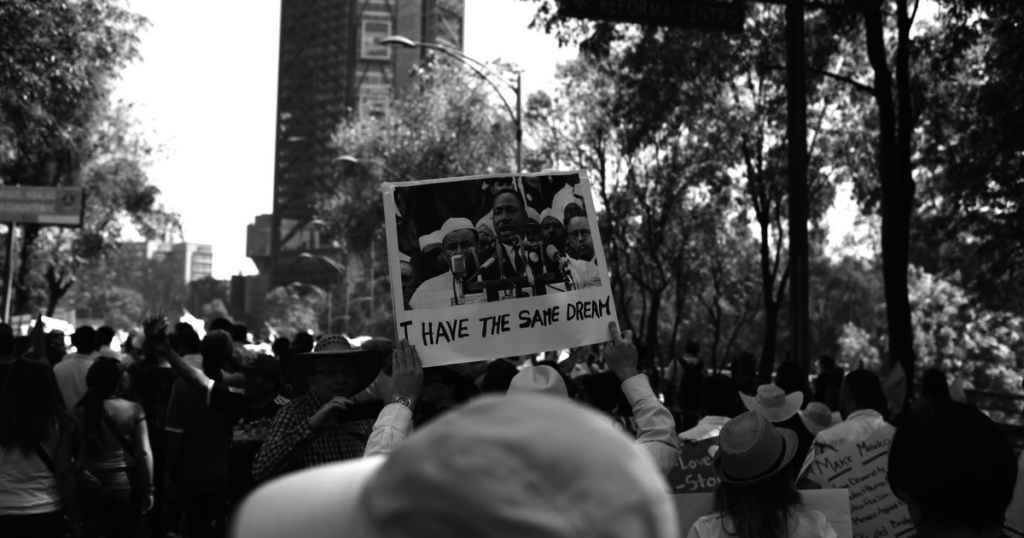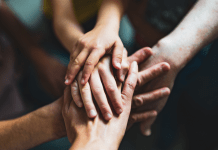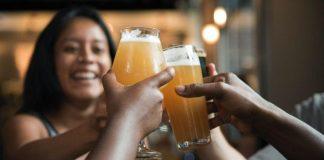You can’t turn on the news anymore without getting smacked in the face by the division in our country. Black Lives Matter. Blue Lives Matter. All Lives Matter. Then, there’s this word, privilege, that is tossed around like sharp stones, pelting white folks at every turn. While our knee-jerk reaction is to recoil and hurl insults, furthering the racial divide, it’s high time we take a step back and humbly educate ourselves on what it means to have privilege in this country.
My journey to understanding white privilege began three years ago when I was pregnant with my daughter. It all started with a reading for book club, and now I see the issue everywhere. I want to take some time to gently dive into this serious matter.
What Is White Privilege?
Privilege is different from “blessing” as it is an inherent benefit or advantage that one person has over another. White privilege includes the benefits white people experience just for being white, like safe, suburban neighborhoods, healthier birth outcomes, and dolls that resemble your kids. Privilege is something you are born with, not something you can earn, like a pay raise or a promotion.
It’s important to know that every American has some degree of privilege. A man can walk down the street at night without fear that he could be raped. A white woman can go shopping at her favorite store and not worry about being followed by an employee. You’re more likely to see a black woman in a movie or on a TV show with a fair complexion than a black woman with a darker complexion.
What Can We Do About It?
Privilege is not generally bad, as we can’t choose to be privileged. What matters is how privilege is used. Understand this: No one is asking white people to relinquish or feel ashamed of their privilege. White people need to acknowledge this privilege and use it for good.

As I have seen this conversation grow, I have been encouraged. I do believe that most white people want to see change, and they want to be a part of the bridge that is slowly forming. However, we get caught up in the how.
Being an Ally
We have a long road ahead of us in the fight for true racial equality. We can do our small part as allies for justice. An ally is a person who recognizes her privilege and extends it to the oppressed. An ally stands up alongside brothers and sisters of color and says, “I can’t sympathize, but I can empathize with your experience.” An ally votes to change laws that keep minority communities suppressed.
She does not allow racial generalizations to be spoken over family dinner with her in-laws. She doesn’t add qualifiers like “for a black girl” when she compliments a woman of color. And she isn’t surprised by the articulation of a black man. An ally isn’t colorblind, and she doesn’t raise her children to be afraid of race. She teaches her children that our different shades are a beautiful representation of God’s creativity.
Listen, I get it. Our generation was not directly a part of slavery. We weren’t active participants in segregation, and we didn’t pass Jim Crow laws. I also understand that this fight is exhausting and even depressing, but people of color don’t get to ignore the past and present states of our country. They live this reality, day in and day out. So, if they can’t check out, then neither can we. As holders of the upper hand, we owe it to our neighbors to fight for real change.
Learning More
Before we can raise white allies, we must first be white allies. White privilege is blinding. It shields us from seeing truth. There is a lot of work to be done to take off the lifelong blinders. No one can do this work for you. If you are interested in learning more, here is a list of where to start. As you’re doing the research, I urge you to find a community where you can work through your new findings in real time. And bring your kids along so they can see firsthand examples of humble bridge-building. Together, we can rise up and make a real difference.
Books for Mom
Waking Up White, and Finding Myself in the Story of Race by Debby Irving tells her journey to discovering her own white privilege.
Just Mercy: A Story of Justice and Redemption by Bryan Stevenson gives a look into how the legal system is bent to benefit wealthy, white Americans and suppress lower class, minorities, and mentally unstable.
The New Jim Crow: Mass Incarceration in the Age of Colorblindness by Michelle Alexander explains how lawmakers have recreated the Jim Crow laws of the 21st century into mass incarceration of communities of color.
Books for Kids
The Color of Us by Karen Katz follows Lena on a journey through her neighborhood as she discusses all the beautiful shades of her friends’ skin tones (4 – 8 years).
Rosa Parks (Little People, Big Dreams) by Lisbeth Kiser tells the story of Rosa Parks in easy — but factual — terms for young minds to understand (4 – 8 years).
Brown Girl Dreaming by Jacqueline Woodson is a poetic memoir of her life as a young African-American girl growing up in the Civil Rights era (10 years and up).














Thank you for taking the time to write this. I’m still processing but I like how you’ve said what you said. I will be honest and admit that I don’t really understand completely what white privilege is, but hurling it at me as an insult … You’re right, it just makes me defensive. I have thought before that it’s not fair to insult me for things I have ZERO control over, and really it accomplishes nothing. But I’m more than willing to admit that yes, I was born white and that comes with things that I didn’t really recognize before. I strive to treat everyone the same and teach my kids to do the same. God made us all different colors and it shouldn’t matter AT ALL which color he made you. BUT, I think one thing we have to remember is that racism? – it goes both ways. I promise you I will work to learn and adapt and make this world better for all, but I expected same of you, ya know? Let’s work together; we’ll get farther.
This a good call to action and a well written introduction to a topic, racial justice, for which our communities need more white allies. I recently read Bryan Stevenson’s book Just Mercy, listed in Books for Mom. I followed that by reading White Rage: The Unspoken Truth of our Racial Divide, by Carol Anderson. That was like a one, two gut punch. Becoming a white ally means requires acknowledging uncomfortable truths about how white privilege remains, well, privileged. Reading either of those books will almost certainly loosen any progressive leanings you might have for social justice issues involving racial inequality. The White Ally Toolkit was published in April 2018 which I strongly recommend. A central premise of the toolkit is that our communities need more white folk to be engaged in dialogue with other white folk on the subject of racism. The White Ally Toolkit – https://www.whiteallytoolkit.com/
Thanks for forcing me to face myself and have the guts to answer some hard questions because you put yourself out there. Great article.